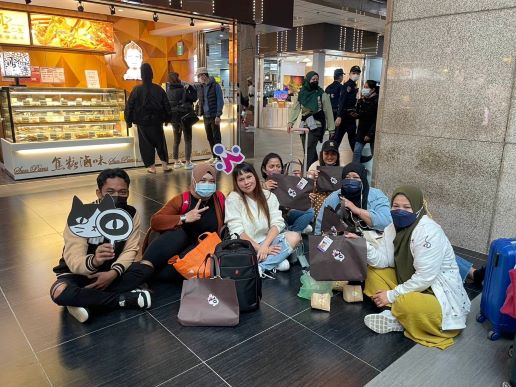Migrant workers in Taiwan lack reliable information and verification channels due to language and cultural barriers, which makes it easier for them to be duped. In order to develop a one-year Taiwan-Indonesia program, the Indonesian Anti-Defamation Society (MAFINDO) collaborated with the Taiwanese NGO, TransAsia Sisters Association, Taiwan. The social media literacy project gathers and categorizes a variety of prevalent frauds and offers useful tools to stop these scams.

NGO Establishes Anti-Scam Association to Remind Migrant Workers in Taiwan of Practical Fraud Prevention Knowledge.Photo reproduced from TransAsia Sisters Association, Taiwan Facebook
According to the editor-in-chief of the Taiwan FactCheck Center, the danger of being duped abroad would rise if migrant workers in Taiwan lack accurate information and avenues for verification.

NGO Establishes Anti-Scam Association to Remind Migrant Workers in Taiwan of Practical Fraud Prevention Knowledge.Photo reproduced from Komunitas Indo Taiwan Hoax-Proof: Anti Tipu-Tipu! 在台印尼人防騙局社團 Facebook
The manager of the Taiwan-Indonesia Social Media Literacy Project noted that the common frauds in the Southeast Asian community may be broadly categorized into four categories: housing fraud, online auction fraud, contribution fraud, and love fraud. Scams involving love, donations, and internet auctions are all too common in Taiwan. However, migrant workers who wish to save money to return home and buy a house are clearly the target of housing scams.
To make money and construct homes back home, many migrant workers migrate to Taiwan. As a result, some fellows take use of their own advantages to trick migrant workers into believing they can buy a home as long as the down payment is made.

NGO Establishes Anti-Scam Association to Remind Migrant Workers in Taiwan of Practical Fraud Prevention Knowledge.Photo reproduced from Komunitas Indo Taiwan Hoax-Proof: Anti Tipu-Tipu! 在台印尼人防騙局社團 Facebook
Remind migrant workers that images used in phony mails are frequently taken from the Internet. Emotions are one of the keys to recognizing frauds in the face of constantly evolving fraud attempts. Any news that causes a strong emotional reaction requires caution. When you get good news or learn that a lottery is set to take place, for instance, it is essentially a suspicious message.

NGO Establishes Anti-Scam Association to Remind Migrant Workers in Taiwan of Practical Fraud Prevention Knowledge.Photo reproduced from TransAsia Sisters Association, Taiwan Facebook
We also anticipate more individuals working together in the future to spread the Taiwan-Indo social media literacy strategy. The Facebook page Komunitas Indo Taiwan Hoax-Proof: Anti Tipu-Tipu! 在台印尼人防騙局社團 will also regularly publish accurate information, encouraging community collaboration and mutual aid across communities while cultivating a circle of trust among international migrant workers. This has become one of the avenues for efficient verification.







